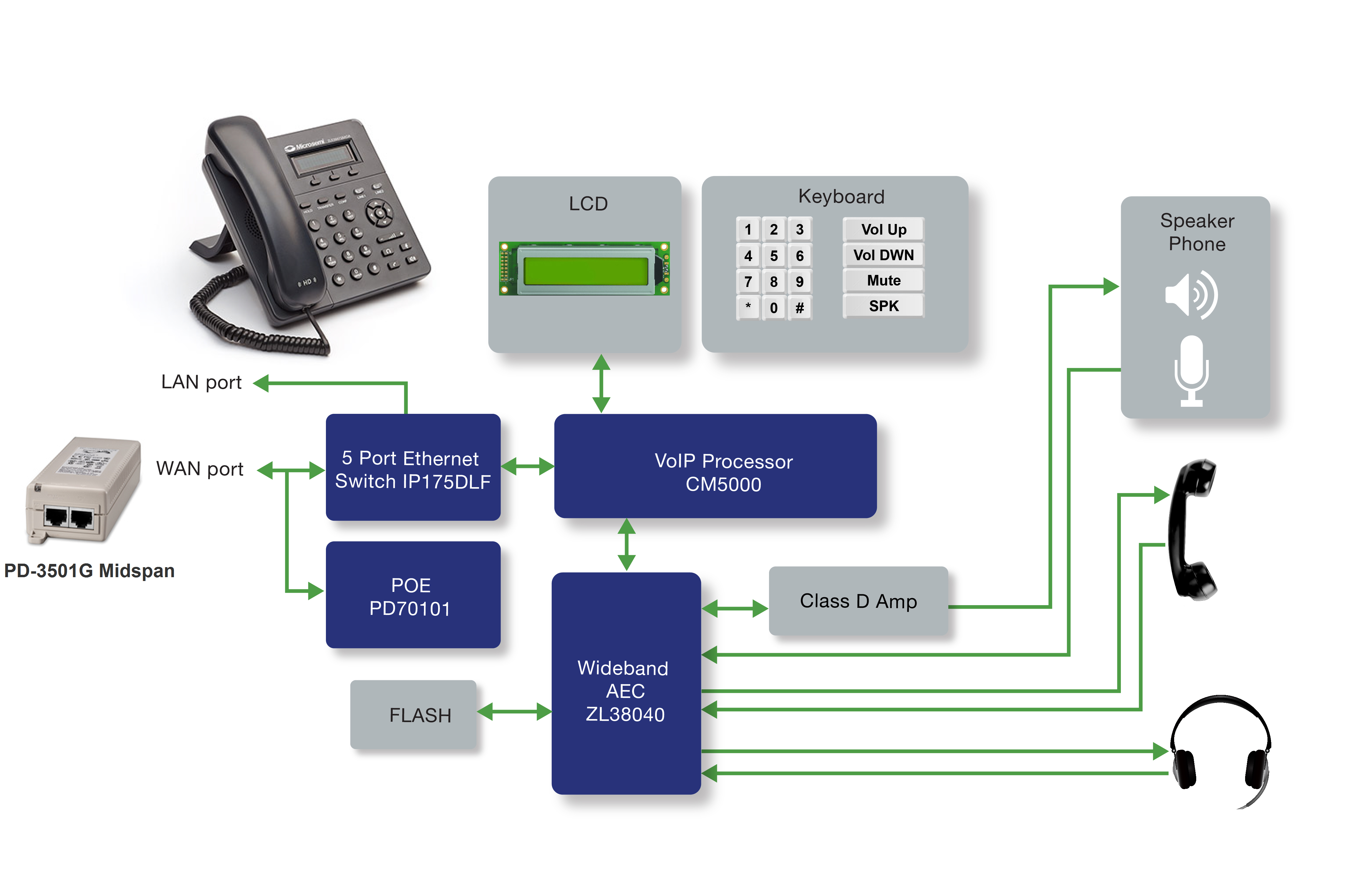In the digital age, staying connected is essential. Whether you’re running a business, working remotely, or simply trying to keep in touch with loved ones, the way we communicate has evolved dramatically. Voice over IP (VoIP) technology has played a significant role in this transformation. It’s time to explore the heart of VoIP technology, IP phones, and their hardware components.
What Is VoIP?
VoIP, or Voice over Internet Protocol, is a revolutionary technology that allows voice communication and multimedia sessions to be transmitted over the internet. Instead of traditional telephone lines, VoIP uses data networks to send and receive audio, video, and text. This has opened up new possibilities for communication, making it more cost-effective and flexible.
VoIP is the backbone of various communication applications, including video conferencing, voice calls, and messaging. To use VoIP, you need specific hardware components, and IP phones are at the forefront of this technology.
IP Phones: The Backbone of VoIP Communication
An IP phone, also known as a VoIP phone, is a specialized communication device designed for VoIP technology. Unlike traditional analog phones, IP phones convert voice signals into digital data and transmit them over the internet. This process, known as packetization, allows for more efficient communication and offers several advantages.
Hardware Components of IP Phones
IP phones are equipped with various hardware components that make them an essential part of VoIP communication. Let’s delve into the key hardware elements of IP phones:
Microphone and Speaker: IP phones come with built-in microphones and speakers, enabling users to speak and hear clearly during calls. Some models also have advanced noise-canceling features for improved audio quality.
Display Screen: Many IP phones have an LCD display screen that provides information about call status, caller ID, and other relevant details. This screen makes it easy to navigate the phone’s settings and features.
Keypad: While some IP phones have a traditional numeric keypad, others feature a touch screen interface or programmable buttons. The keypad is essential for dialing numbers, accessing voicemail, and navigating through call options.
Ethernet Ports: IP phones are typically equipped with Ethernet ports that allow them to connect to the internet via an Ethernet cable. Some advanced models may also support Wi-Fi connectivity.
Power Source: IP phones can be powered through Power over Ethernet (PoE) or external power adapters. PoE is a convenient option for businesses, as it eliminates the need for additional power outlets.
RJ-45 Port: The RJ-45 port on an IP phone is used to connect to the local area network (LAN) for internet connectivity. This port is crucial for ensuring a stable and consistent internet connection.
Headset Jack: Many IP phones have a 3.5mm headset jack, allowing users to connect a headset for hands-free communication. This is particularly useful for busy professionals who need to multitask during calls.
Quality of Service (QoS) Support: QoS features in IP phones help prioritize VoIP traffic to ensure high call quality. This is especially important in busy network environments where multiple devices are competing for bandwidth.
Security Features: Security is a paramount concern in VoIP communication. IP phones often come with encryption and authentication features to protect calls and data from potential threats.
Benefits of IP Phones and Hardware in VoIP
IP phones and their hardware components offer numerous benefits for users and organizations:
Cost-Efficiency: VoIP technology is cost-effective, and IP phones are a one-time investment. Calls between IP phones are often free, which can lead to substantial cost savings, especially for businesses with frequent long-distance communication.
Flexibility: IP phones can be used anywhere with an internet connection. This flexibility is especially advantageous for remote workers and businesses with multiple locations.
Scalability: As your organization grows, it’s easy to add more IP phones to your network. VoIP systems are highly scalable and adaptable to your evolving communication needs.
Advanced Features: IP phones often come with advanced features like video conferencing, call forwarding, voicemail, and call recording, enhancing productivity and communication efficiency.
Integration: IP phones can be integrated with other software applications, such as customer relationship management (CRM) systems and email clients, streamlining communication processes.
Reliability: VoIP technology and IP phones have become increasingly reliable over the years, with minimal downtime and high call quality.
Environmental Impact: VoIP technology, including IP phones, is more environmentally friendly compared to traditional telephony, as it reduces the need for physical hardware and infrastructure.
Choosing the Right IP Phone
When selecting an IP phone for your business or personal use, consider the following factors:
Budget: Determine your budget and explore IP phone options within that range. Keep in mind that different models come with varying features and capabilities.
Call Volume: Consider the volume of calls you anticipate making. Some IP phones are designed for high call volume environments, while others are more suitable for occasional use.
Features: Think about the specific features you need, such as video conferencing, call recording, or integration with other software applications. Choose a phone that aligns with your requirements.
Compatibility: Ensure that the IP phone you select is compatible with your VoIP service provider and network infrastructure.
Ease of Use: User-friendly interfaces are essential for efficient communication. Test the phone’s interface and ensure it meets your usability preferences.
Security: If security is a primary concern, look for IP phones with robust security features to protect your calls and data.
Conclusion
IP phones and their hardware components play a vital role in the world of VoIP communication. As technology continues to advance, these devices are becoming increasingly sophisticated, providing users with a rich array of features and benefits. Whether you’re a business owner looking to enhance communication within your organization or an individual seeking more cost-effective and flexible ways to stay connected, IP phones are a compelling solution that can make a significant impact on your communication experience. Embrace the future of communication technology with IP phones and unlock a world of possibilities.


